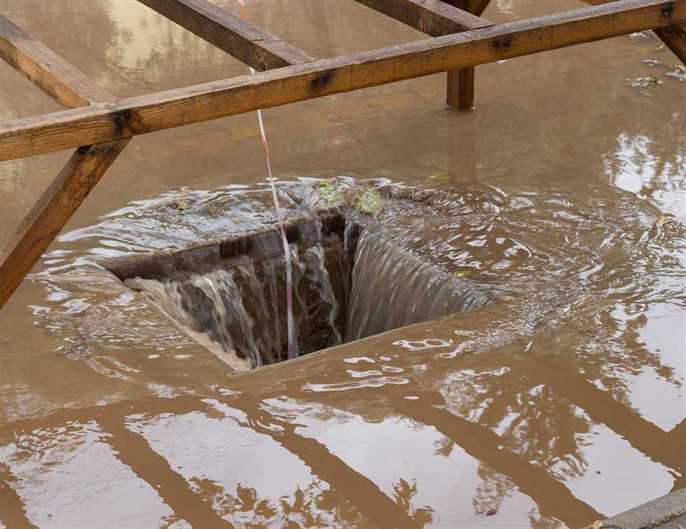
It’s time for everyone’s favourite segment: Short Answer Long Answer! Today’s question: Does rain affect my plumbing?
The short answer: Yes!
The long answer: Yes, and it affects your plumbing in a lot of different ways, some of which you might not expect:
First, let’s go into the main way that rain affects your plumbing. Whether you’ve got a septic tank or you’re tied into the city’s sewer line, rain principally affects your plumbing through how it affects sewage disposal. Let’s dive a little deeper (into the topic, not the sewage).
When there’s a ton of rainwater, it all has to go somewhere. That somewhere is, typically, into the ground, which absorbs the rainwater. In today’s very hard-surfaced, urban environments, much of the rainwater lands on streets, where it goes into storm drains. These storm drains divert the water to either wastewater treatment (the sewer system) or to retention ponds.
How is this relevant to your plumbing? Well, when there’s too much rainwater in the city’s sewer system, it may not be able to accept new sewage. In the same vein, if there’s too much rainwater in your sewer line, you may end up with a backed-up pipe. This problem can be decreased through the use of backwater valves, which stop sewage from backing up should you find yourself in an overflow scenario.
The other trick to prevent sewer backup is the use of a sump pit and pump. The process is simple: a corrugated pipe around your home, known as a weeping tile, diverts rainwater to the pit. The pump, installed in the pit, pushes the water out of your house and toward your lawn, where it can be absorbed. Sump pumps are so integral to stopping basement flooding that the City of Winnipeg has mandated them in homes built since 1990. Sump pumps are a plumber’s domain, so they fall pretty heavily in the “rain affects plumbing” category.
Now onto septic tanks, which we can all agree fall squarely in the domain of plumbing. A brief primer on how septic tanks actually work: at a certain point, bacteria have eaten away at most of the sludge, and the remaining liquid flows into the septic field, where it’s filtered naturally by the ground (and the organisms in it).
When there’s an abundance of rainwater, the ground can become saturated with water – that means it can’t take any more liquid. In these circumstances, the liquid that should naturally flow from your septic tank can’t, which can pretty rapidly result in sewer backup.
This shouldn’t happen too often; if it does, you may need a larger septic tank. This is especially true if it happens after a relatively light rainfall.
And now you know some of the ways that rainfall affects your plumbing! Aren’t you glad you stuck around for the long answer? Should you have any other questions about plumbing, don’t hesitate to contact our Winnipeg plumbers. We can give you short or long answers to any plumbing questions you might have.
